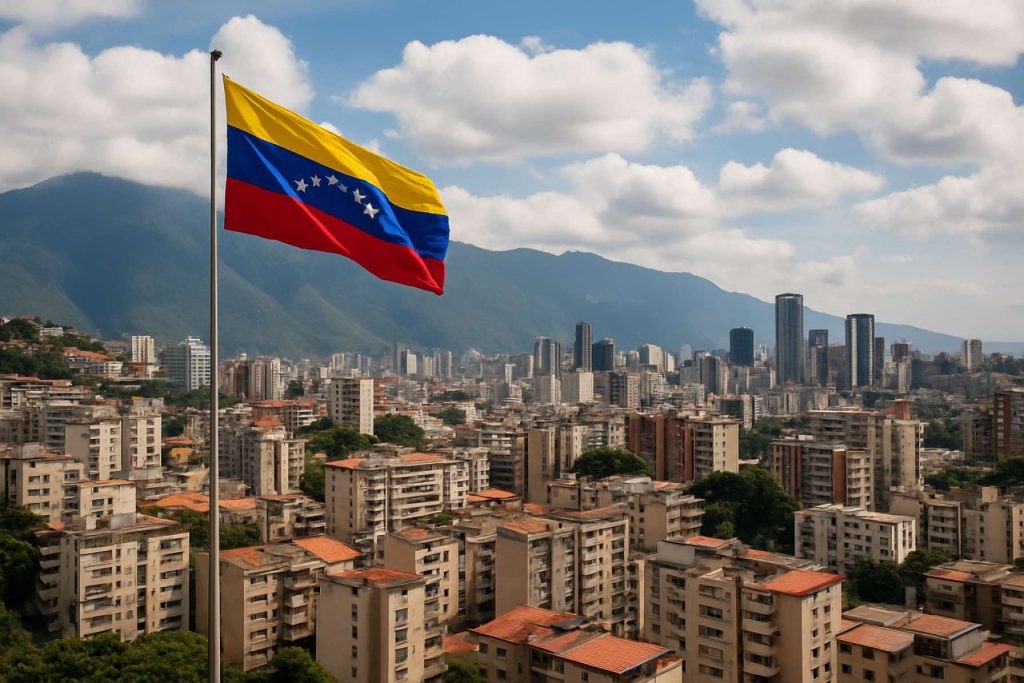
Table of Contents
- Executive Summary: Key Findings for 2025 and Beyond
- Current Rental Market Landscape: Supply, Demand, and Pricing Trends
- Government Policies and Regulatory Framework: 2025 Updates
- Landlord and Tenant Laws: Rights, Obligations, and Recent Changes
- Taxation on Rental Income: Compliance and Reporting Requirements
- Economic Factors Impacting the Rental Market: Inflation, Currency, and Employment
- Foreign Investment and Ownership: Opportunities and Restrictions
- Key Market Statistics: Occupancy, Yields, and Regional Variations
- Risks and Challenges: Legal, Economic, and Social Considerations
- Future Outlook: Projections and Scenarios Through 2030
- Sources & References
Executive Summary: Key Findings for 2025 and Beyond
The Venezuelan rental market in 2025 is characterized by ongoing regulatory complexity, limited supply, and shifting compliance requirements. The sector remains heavily influenced by long-standing rent control laws and government intervention, factors that continue to shape availability, pricing, and investor confidence. The following key findings summarize the current state and outlook for the Venezuelan rental market:
- Regulatory Landscape: The Supreme Tribunal of Justice and the Superintendence for the Defense of Socio-Economic Rights (SUNDDE) continue to enforce the “Ley para la Regularización y Control de los Arrendamientos de Vivienda” (Law on the Regularization and Control of Housing Leases). This law dictates rent ceilings, tenant protections, and lengthy eviction processes, constraining landlord flexibility and market-driven pricing.
- Compliance Requirements: Landlords are required to register rental contracts and adhere to regulated rent calculation formulas, as outlined by SUNDDE. Non-compliance can result in administrative sanctions and legal challenges, increasing operational complexity for property owners.
- Market Statistics: Official figures remain scarce; however, government sources estimate that over 30% of urban households occupy rented dwellings. The public sector’s share of the rental stock has not significantly increased due to budgetary constraints, and the private sector has seen a contraction in formal rental offerings, with many agreements moving to the informal market to circumvent controls (National Institute of Statistics).
- Supply and Demand: Ongoing rent freezes and strict tenant protections have discouraged new investment in rental housing, exacerbating the supply-demand gap. Unauthorized subletting and informal arrangements are increasingly common, as property owners seek to mitigate regulatory risks.
- Outlook for 2025 and Beyond: No major legislative reforms are anticipated in the near term, suggesting that the restrictive environment will persist. The rental market is expected to remain constrained, with informal contracts playing a significant role. Pressure for regulatory modernization could grow if the economic recovery accelerates or if international organizations advocate for housing sector liberalization (Ministry of Housing and Habitat).
In summary, Venezuela’s rental market in 2025 is shaped by entrenched regulatory controls, compliance burdens, and a prevailing informal sector. The outlook suggests continued tight supply, subdued formal investment, and little prospect for significant policy liberalization in the short term.
Current Rental Market Landscape: Supply, Demand, and Pricing Trends
The rental market in Venezuela continues to experience significant challenges and gradual shifts as the country moves through 2025. The interplay of longstanding policy controls, economic volatility, and evolving demand patterns has shaped the current landscape, with notable impacts on supply, pricing, and compliance requirements.
Historically, Venezuela’s rental housing market has been severely constrained by the Superintendencia Nacional para la Defensa de los Derechos Socioeconómicos (SUNDDE)’s price controls and tenant protections, most notably through the 2011 Law for the Regulation and Control of the Lease of Housing. This law imposes strict rent caps and offers strong tenant protections, including automatic lease renewals and restrictions on evictions. Compliance remains mandatory for landlords, who must register properties and contracts with the SUNDDE and adhere to regulated pricing formulas.
In 2025, the supply of formal rental housing remains severely limited. Many private landlords have withdrawn properties from the market due to the perceived risks of non-payment and difficulties in recovering possession, exacerbated by the economic crisis. The Ministerio del Poder Popular para Hábitat y Vivienda has continued efforts to expand social housing, yet these programs have not sufficiently bridged the gap between demand and available units.
- Demand: Urbanization and internal migration persist, especially towards Caracas and regional capitals, driving demand for rental housing. The inability of many Venezuelans to secure mortgages due to high inflation and limited credit availability also increases reliance on rental options.
- Pricing Trends: Official rent increases remain tightly regulated, with annual adjustments set by government decree in line with inflation indices published by the Banco Central de Venezuela. However, in the informal market, “under-the-table” agreements and payments in foreign currency (mainly USD) have become widespread, often bypassing official restrictions.
- Compliance: The government continues periodic enforcement campaigns to ensure landlords comply with registration, contract, and rent cap rules. Non-compliance can result in administrative sanctions, fines, or asset seizure by the SUNDDE.
Looking ahead, the outlook remains uncertain. While there are periodic proposals for regulatory reform to incentivize private investment in rental housing, enforcement of existing controls persists. Unless there is substantive policy change, the formal rental market is expected to remain constrained in the next few years, with continued reliance on informal arrangements and dollarization of rents outside official channels. The situation will remain highly sensitive to macroeconomic stability and any shifts in housing policy by the current administration.
Government Policies and Regulatory Framework: 2025 Updates
The Venezuelan rental market in 2025 operates within a complex regulatory framework that has evolved in response to ongoing economic challenges and shifting government priorities. The principal legislative instrument governing residential and commercial leases continues to be the Ley para la Regularización y Control de los Arrendamientos de Vivienda (Law for the Regulation and Control of Housing Rentals), enacted in 2011 and last amended in 2022. This law establishes strict rent controls, tenant protections, and administrative procedures, which remain largely in force as of 2025.
Key government oversight is provided by the Superintendencia Nacional para la Defensa de los Derechos Socioeconómicos (SUNDDE), which is responsible for enforcing rent ceilings and mediating rental disputes. The SUNDDE periodically issues updated rental price tables, taking into account inflation and property values, though rent increases remain capped and subject to administrative approval.
In 2025, the government has maintained its emphasis on tenant protection, prohibiting arbitrary evictions and requiring landlords to seek approval from the Ministerio del Poder Popular para Hábitat y Vivienda before terminating leases. Administrative courts continue to handle disputes, with a legal presumption in favor of tenant stability and affordability. Recent clarifications from the Tribunal Supremo de Justicia have reiterated the need for landlords to comply with all registration and notice requirements, or face stiff penalties.
Compliance remains a challenge, particularly in high-demand urban centers such as Caracas, Valencia, and Maracaibo. Landlords are required to register all lease agreements with the National Housing Registry, and both parties must adhere to the rent limits and duration conditions stipulated by the law. The SUNDDE has increased its inspection activities in 2025, imposing fines and, in some cases, temporary property seizures for non-compliance with registration and price controls.
Key statistics from the Ministerio del Poder Popular para Hábitat y Vivienda indicate that formal rental contracts in 2024 covered approximately 22% of urban households, a figure that is expected to remain stable or grow slightly in 2025 as the government seeks to incentivize formalization. However, informal rental arrangements, often outside the purview of regulatory oversight, are estimated to account for a significant portion of the market, reflecting both housing shortages and regulatory avoidance.
Looking ahead, the outlook for the Venezuelan rental market is shaped by persistent economic instability and government intervention. While the authorities have signaled minor flexibility in enforcement to encourage new housing supply, the core regulatory regime is expected to persist through 2025 and beyond. Market participants should anticipate continued strict oversight, periodic regulatory adjustments, and the possibility of further amendments aimed at balancing tenant protection with the need to attract investment in the rental housing sector.
Landlord and Tenant Laws: Rights, Obligations, and Recent Changes
Venezuela’s landlord and tenant laws have undergone significant changes over the past decade, shaped by economic instability, currency devaluation, and evolving government policies. The legal framework for rental agreements is primarily governed by the Ley para la Regulación y Control de Arrendamientos de Vivienda (Law for the Regulation and Control of Housing Leases), enacted in 2011. This law, still in force as of 2025, imposes strict controls on rental contracts, rent increases, eviction procedures, and tenant protections.
Key obligations for landlords include the registration of all rental contracts with the Superintendencia Nacional para la Defensa de los Derechos Socioeconómicos (SUNDDE). Landlords are required to maintain the property in habitable condition and cannot unilaterally increase rent or terminate contracts outside the legal provisions. Tenants are protected from arbitrary eviction, with evictions only permitted under specific circumstances and with judicial authorization. Rent increases are regulated and typically indexed to government-set parameters, which often lag behind inflation.
Compliance remains a challenge. Due to hyperinflation and currency fluctuations, many landlords and tenants bypass formal contracts or negotiate in U.S. dollars, even though the law technically mandates transactions in local currency (SUNDDE). Enforcement is inconsistent, as the judicial system faces significant backlogs and resource constraints. The government has increased inspections and penalties for non-compliance, but informal arrangements persist, especially in urban centers.
Key statistics highlight the pressure on the rental market. According to the Instituto Nacional de Estadística (INE), over 20% of urban households rely on rental accommodations as of 2025, with the majority facing affordability challenges. The regulated rent framework has led to a chronic shortage of formal rental housing, driving up prices in the informal sector. Official data from Ministerio del Poder Popular para Hábitat y Vivienda indicate that new rental housing starts have declined sharply since 2017, exacerbating supply issues.
Looking ahead to 2025 and beyond, no major legislative reforms are anticipated, but the government has signaled periodic reviews of rent control indices and tenant protections. The outlook is for continued regulatory rigidity, persistent informality, and constrained supply unless broader economic stabilization occurs or the legal environment is liberalized by future policy shifts (Ministerio del Poder Popular para Hábitat y Vivienda).
Taxation on Rental Income: Compliance and Reporting Requirements
Taxation of rental income in Venezuela is governed by a framework that seeks to regulate both individual and corporate landlords, with compliance and reporting requirements enforced by national authorities. According to the Servicio Nacional Integrado de Administración Aduanera y Tributaria (SENIAT), rental income is classified as taxable income, regardless of whether the property owner is a resident or non-resident. All income derived from leasing real estate situated in Venezuelan territory must be declared in the annual income tax return.
The applicable tax rate for individuals is progressive, ranging from 6% to 34%, depending on total annual income. Corporations are generally subject to a flat tax rate of 34% on their net taxable income, including earnings from rental activities. Landlords are permitted to deduct certain expenses directly related to the generation of rental income, such as property maintenance, municipal taxes, and insurance premiums, provided adequate documentation is maintained and presented upon request (SENIAT).
Recent years have seen increased focus on compliance, as the government seeks to broaden the tax base and improve fiscal revenues amid ongoing economic challenges. SENIAT conducts regular audits and cross-references property registries with tax records to identify underreported rental income. Penalties for non-compliance can be significant, including fines, interest, and potential criminal prosecution for deliberate evasion (SENIAT).
Reporting requirements stipulate that all rental contracts must be registered with the Servicio Autónomo de Registros y Notarías (SAREN), and landlords must provide tenants with official receipts for all payments received. This documentation is essential for both tax reporting and legal compliance. Additionally, certain municipalities may impose local taxes on rental activities, requiring further declarations at the municipal level (Municipal Government of Caracas).
Looking ahead to 2025 and beyond, the outlook for rental income taxation in Venezuela is shaped by ongoing efforts at digitalization and regulatory modernization. SENIAT has announced plans to enhance its electronic filing systems and streamline property-related tax processes, aiming to improve voluntary compliance and reduce administrative burdens for landlords (SENIAT). As the government continues to prioritize revenue collection, landlords in the Venezuelan rental market should anticipate continued enforcement and evolving compliance requirements in the coming years.
Economic Factors Impacting the Rental Market: Inflation, Currency, and Employment
The Venezuelan rental market in 2025 continues to be deeply influenced by macroeconomic instability, with inflation, currency devaluation, and employment trends shaping both demand and supply. Hyperinflation persists as a defining challenge; the Banco Central de Venezuela reports annual inflation rates remaining in the triple digits, eroding the real value of rental income and complicating price setting for landlords and tenants alike. This has led to widespread informal indexation of rents to the U.S. dollar, despite the official currency being the bolívar, as both parties seek to hedge against further currency depreciation.
Currency volatility continues to disrupt rental agreements. The bolívar’s ongoing devaluation means that landlords increasingly prefer to denominate contracts in dollars or euros, a practice that, while technically restricted by law, has become common in larger urban markets. The Superintendencia de las Instituciones del Sector Bancario has acknowledged the dollarization trend in broader economic transactions, though regulatory enforcement around currency use in rental contracts remains inconsistent. This dual-currency environment complicates compliance and increases legal uncertainty for both parties.
Employment instability further impacts the rental sector. According to data from the Instituto Nacional de Estadística, unemployment remains high and underemployment is widespread, limiting the ability of many Venezuelans to meet rental obligations, especially as rents rise in line with the dollar. Informal labor, which constitutes a significant portion of the workforce, results in irregular income streams, further reducing the pool of reliable tenants.
On the legal front, the Ley para la Regularización y Control de los Arrendamientos de Vivienda remains the primary framework governing the sector. The law imposes strict controls on rent increases and tenant eviction, and requires registration of contracts with the Superintendencia Nacional de Arrendamientos de Vivienda (SUNAVI). However, compliance is frequently challenged by economic realities, with many contracts remaining unregistered or denominated in foreign currency outside the formal regulatory scope.
Looking ahead, the outlook for the Venezuelan rental market in the next few years remains cautious. Unless macroeconomic stability is achieved, landlords and tenants are likely to continue operating in a semi-formalized, dollarized environment. Ongoing efforts by authorities to tighten regulatory compliance will face significant headwinds from persistent inflation, currency volatility, and labor market weakness, all of which are expected to continue shaping rental market dynamics through 2025 and beyond.
Foreign Investment and Ownership: Opportunities and Restrictions
Venezuela’s rental market remains a complex landscape for foreign investors due to a combination of regulatory restrictions, evolving legislation, and macroeconomic volatility. The country’s legal framework for rental properties is primarily dictated by the Ley para la Regularización y Control de los Arrendamientos de Vivienda (Law for the Regulation and Control of Housing Rentals), which was enacted in 2011 and continues to shape the rental sector as of 2025. This law significantly restricts evictions, limits rental price increases, and enforces strict tenant protections, posing notable compliance challenges for both domestic and foreign landlords.
Foreign investors may acquire property in Venezuela without explicit nationality-based prohibitions, provided they comply with local registration and tax requirements. However, all rental contracts must be registered with the Servicio Autónomo de Registros y Notarías (SAREN) and adhere to rent controls, which are periodically updated by the Superintendencia Nacional para la Defensa de los Derechos Socioeconómicos (SUNDDE). These controls have, in practice, capped returns and increased regulatory oversight, making compliance a critical consideration for foreign participation.
Key statistics indicate a persistently low formal rental supply, with an estimated 90% of urban Venezuelans owning their homes and a large proportion of rental agreements occurring informally to circumvent regulatory burdens. Following years of hyperinflation, the government has allowed a partial dollarization of rental contracts, especially in commercial and high-end residential segments, but all contracts must still be filed in local currency according to SUNDDE guidance. This duality creates operational complexities and legal ambiguities for foreign investors seeking stable returns.
Recent government statements in 2024 and into 2025 signal ongoing plans to revise housing and rental regulations to attract foreign capital and address urban housing shortages. The Ministry of Popular Power for Housing and Habitat (MINHVI) has initiated public consultations on potential reforms, aiming to balance tenant protections with incentives for new private rental developments. However, substantive legislative changes have yet to materialize, leaving the current restrictive regime in place.
Looking ahead, foreign investors face a cautiously optimistic outlook: while Venezuela’s vast housing deficit and gradual economic stabilization present opportunities, high compliance costs, rent caps, and enforcement unpredictability remain significant barriers. Market watchers anticipate incremental reforms, particularly if the government continues to signal openness to foreign capital, but the pace and scope of any liberalization will depend on broader political and economic developments.
Key Market Statistics: Occupancy, Yields, and Regional Variations
The Venezuelan rental market in 2025 is characterized by distinct regional variations, evolving occupancy trends, and fluctuating rental yields, all influenced by the country’s economic and regulatory environment. The sector remains shaped by persistent inflation, currency volatility, and a gradual regulatory shift aimed at encouraging private investment while protecting tenants’ rights.
- Occupancy Rates: In major urban centers such as Caracas, Valencia, and Maracaibo, residential occupancy rates average between 85% and 90%, reflecting sustained demand despite economic headwinds. In contrast, secondary cities and rural areas report lower occupancy rates, often below 75%, largely due to migration patterns and limited employment opportunities (Instituto Nacional de Estadística (INE)).
- Rental Yields: Gross rental yields in the Venezuelan residential market vary sharply by region and property type. In Caracas, yields for centrally located apartments typically range from 5% to 8%, with some premium properties achieving slightly higher returns due to scarcity and robust expatriate demand. Mid-sized cities like Barquisimeto and Maracay report yields closer to 3%–5%, reflecting lower rent levels and less dynamic tenant turnover (Superintendencia Nacional para la Defensa de los Derechos Socioeconómicos (SUNDDE)).
- Regional Disparities: Regional rental markets display marked disparities. Coastal zones and resource-rich regions, such as Zulia, face elevated vacancy rates following the outflow of oil sector workers and multinational companies over recent years. Meanwhile, eastern states like Anzoátegui are experiencing modest improvements in occupancy, tied to infrastructure investments and a nascent tourism revival (Ministerio del Poder Popular para Hábitat y Vivienda).
- Market Compliance: The enforcement of rent controls and tenant protections under the current Ley para la Regularización y Control de los Arrendamientos de Vivienda continues to influence market behavior. While compliance remains robust in formal housing segments, informal rentals—estimated at over 30% of the national market—often operate outside regulatory scrutiny, complicating comprehensive data collection and policy enforcement (Tribunal Supremo de Justicia (TSJ)).
Looking ahead, rental yields may see modest upward pressure in urban cores as economic stabilization efforts and currency reforms take root. However, regional disparities are expected to persist, with ongoing migration and urbanization shaping both occupancy and yield dynamics through 2025 and beyond.
Risks and Challenges: Legal, Economic, and Social Considerations
The Venezuelan rental market in 2025 is shaped by a complex interplay of legal, economic, and social risks and challenges. A legacy of stringent rent controls, currency instability, and ongoing regulatory uncertainty continues to affect both landlords and tenants. Understanding these dynamics is critical for compliance and risk management in property leasing.
- Legal Framework and Compliance: The rental sector is governed primarily by the Ley para la Regularización y Control de los Arrendamientos de Vivienda (Law for the Regularization and Control of Housing Rentals), which has imposed caps on rent increases, regulated evictions, and established the Superintendencia Nacional de Arrendamiento de Vivienda (SUNAVI) as the overseeing authority. SUNAVI continues to require mandatory registration of rental contracts and enforces compliance with formal lease agreements and standardized rent values. Non-compliance can result in administrative sanctions or legal disputes, placing owners at risk of asset freezes and protracted litigation. The law strongly favors tenants, making eviction for non-payment or other causes difficult and time-consuming (Superintendencia Nacional de Arrendamiento de Vivienda).
- Economic Instability: Venezuela’s economic volatility remains a central risk to the rental market. Hyperinflation, currency devaluation, and limited access to foreign exchange challenge the sustainability of rental income. Although recent years have seen some relative price stabilization, rents are frequently denominated and negotiated in U.S. dollars due to the bolívar’s volatility. This practice, while widespread, operates in a legal gray area, as the national currency remains the only lawful tender for official contracts (Banco Central de Venezuela). Additionally, high operating costs and taxes further erode landlord returns.
- Key Statistics and Market Dynamics: Official statistics are scarce, but estimates by housing authorities suggest that over 30% of urban households live in rental accommodation. The supply of formal rental housing remains limited, with many landlords withdrawing properties from the market due to regulatory burdens and low profitability. Informal renting—often lacking legal protections—has grown, exposing both parties to additional risks (Ministerio del Poder Popular para Hábitat y Vivienda).
- Social Considerations and Outlook: The market faces mounting social pressure as affordability worsens. Renters, especially in urban centers, face overcrowding and insecurity, while landlords struggle to recoup investments or maintain properties. The outlook for 2025 and beyond is uncertain: unless policy reforms address both market liberalization and tenant protections, challenges for legal compliance, economic viability, and social equity are likely to persist.
Future Outlook: Projections and Scenarios Through 2030
The outlook for Venezuela’s rental market through 2030 is shaped by a confluence of legal reforms, economic volatility, and evolving social needs. Recent years have seen gradual but notable regulatory changes, aiming to balance tenant protection with landlord rights. The cornerstone of current regulation remains the 2011 Law for the Regulation and Control of Lease of Housing (Ley para la Regulación y Control de Arrendamientos de Vivienda), which established strict rent caps, extended tenant protections, and created specialized tribunals for rental disputes. Enforcement of these rules is overseen by the Superintendencia Nacional de Arrendamiento de Vivienda (SUNAVI), which continues to process registration and compliance matters for both landlords and tenants.
In 2025, the rental market remains constrained by the legacy of these interventions. Official statistics from Instituto Nacional de Estadística (INE) indicate that less than 15% of urban households reside in rented accommodation—a figure that has only slightly increased since the mid-2010s, reflecting both limited supply and regulatory caution among property owners. Despite monetary stabilization efforts and some easing of controls, rent increases are still largely pegged to government-determined indices, discouraging new private investment in rental properties. Informal rental arrangements persist, often outside the purview of SUNAVI and without legal protections for either party.
Looking ahead, the government has signaled intent to modernize the rental framework to stimulate housing mobility and address urban population pressures. Draft amendments under discussion in the Asamblea Nacional propose more flexible rent adjustment mechanisms and incentives for private sector participation. However, implementation timelines remain uncertain, and compliance challenges are expected to persist, especially in secondary cities and informal settlements.
By 2030, projected scenarios for the Venezuelan rental market hinge on macroeconomic stabilization and the pace of legal reform. In a positive scenario with improved economic conditions and clearer legal pathways, rental supply could expand, moving the rental occupancy rate closer to regional norms (20–25%). In contrast, if regulatory uncertainty and enforcement gaps continue, supply constraints and informality may deepen, limiting market growth and tenant security. Authorities such as SUNAVI are therefore likely to play a critical role in shaping compliance and market transparency over the coming years.



